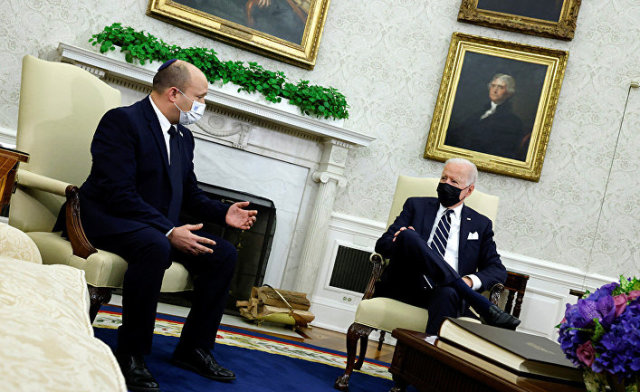Jerusalem. February 6. INTERFAX - The agreement on the Iranian nuclear program, which is being negotiated in Vienna, will ultimately not be able to resolve the problem of Iran's nuclear sphere, Israeli Prime Minister Naftali Bennett said at a cabinet meeting on Sunday.
"Whoever thinks that the agreement will increase stability is mistaken. It will temporarily delay the process of enrichment (of uranium - IF), but all of us in the region will pay a heavy disproportionate price for this," the Jerusalem Post quoted the prime minister as saying.
Bennett noted that the current agreement on the Iranian atom will damage the ability to control the development of Iran's nuclear program.
According to him, Israel is following the progress of the Vienna talks, but at the same time, Iran has intensified aggressive actions in the region against the background of the dialogue in Vienna.
"Israel will retain its freedom of action in any situation, without or with an agreement (on the Iranian atom - IF)," the prime minister added.
The Joint Comprehensive Plan of Action (JCPOA) on the Iranian nuclear program was concluded in 2015 by Iran and the "six" international mediators (the five permanent members of the UN Security Council and Germany). It provided for the restriction of Tehran's nuclear program in exchange for the lifting of international and unilateral anti-Iranian sanctions.
Former US President Donald Trump unilaterally withdrew from the JCPOA in 2018 and resumed anti-Iranian sanctions, which prompted Tehran to gradually abandon compliance with some of the terms of the deal.
Under President Joe Biden, the United States expressed its readiness to restore the JCPOA. To this end, since April 2021, Iran, the United States and the five mediators (Russia, China, Great Britain, Germany and France) have been negotiating the terms of the renewal of the JCPOA. The United States is not directly involved in them.
On December 27, the eighth round of negotiations started in Vienna.

